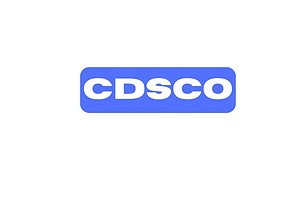Last Updated on December 31, 2023 by The Health Master
Pharmaceutical Quality
In a bid to align with global pharmaceutical quality standards, the proposed Revised Schedule M introduces crucial requirements related to batch record review, stability studies, and computerized systems.
This move is aimed at not only ensuring compliance with drug standards but also fostering innovation, bolstering exports, and instilling trust in the quality of manufactured drugs.
Key Amendments in Revised Schedule M
The Revised Schedule M, slated to come into effect, encompasses several critical aspects:
1. Batch Record Review and Stability Studies
- Batch record review procedures are now a pivotal part of compliance, emphasizing the need for meticulous oversight of production records.
- Stability studies are to be conducted, ensuring that drugs maintain their potency and efficacy over their shelf life.
2. Emphasis on Computerized Systems
- The revised schedule places significant importance on the integration of robust computerized systems, reinforcing data integrity and accuracy in pharmaceutical processes.
3. Preventing Cross Contamination
- A notable addition in the Revised Schedule M is the stringent measures to prevent cross contamination during the manufacturing process.
- This includes detailed guidelines on Air Handling Units (AHUs) and filtration levels to mitigate the risk of contamination.
4. Multi-Product Shared Facility
- For facilities handling multiple products, the schedule outlines technical and organizational measures to minimize the risk of cross contamination.
Implementation Timelines
The Union Health Ministry has provided a 12-month grace period for small-scale manufacturers and a 6-month window for larger units to obtain WHO-GMP certification, starting from August 2, 2023.
This strategic move aims to facilitate a seamless transition to the revised compliance standards.
Differential Timelines for Enterprises
1. Large-Scale Enterprises (Turnover > Rs. 250 Crore)
- Larger companies are required to implement the changes within 6 months, reflecting the urgency to align with the updated Schedule M.
2. Medium and Small-Scale Enterprises (Turnover < Rs. 250 Crore)
- Medium and small-scale enterprises have been granted a one-year timeframe to incorporate the necessary changes, allowing for a more gradual transition.
Industry Perspectives on Revised Schedule M
S. M. Mudda, the Chairman of Regulatory Affairs at the Indian Drug Manufacturers Association (IDMA) and Managing Director of Misom Labs Ltd., Malta, emphasizes the need for a paradigm shift in approach towards GMP compliance.
He advocates for the adoption of a Pharmaceutical Quality System (PQS) as the guiding philosophy, urging the industry to transcend regulatory compliance and focus on product quality.
Shaping a Quality-Centric Pharmaceutical Industry
The proposed amendments in the Revised Schedule M mark a significant step towards harmonizing India’s pharmaceutical industry with global standards.
By incorporating stringent measures for batch record review, stability studies, and preventing cross contamination, the revised schedule aims to bolster trust and confidence in the quality of drugs produced and exported.
The differential timelines for implementation provide a structured approach, ensuring that both large-scale enterprises and smaller units have the necessary time to adapt to the new compliance standards.
As industry leaders advocate for a shift towards a Pharmaceutical Quality System (PQS) approach, it is evident that a commitment to quality and innovation will be the driving force behind India’s pharmaceutical future.
Disclaimer: This article contains information derived from the source mentioned below. Our team utilized an AI language model to rewrite and present the news or article in a unique format.
Key Notes on Revised Schedule M: Compilation
Important short notes for Industry and Regulators
CDSCO Guidelines on Drug Recall
Quality Assurance Vs Quality Control in the Pharma Industry
Major FDA audit findings about Equipment and Instruments
Understanding GMP, cGMP, and WHO-GMP
Quality Assurance in the Pharmaceutical Industry
Duties and responsibilities of QA person in Pharma Industry
Difference: Disintegration and Dissolution test in pharma industry
Understanding DQ, IQ, PQ, and OQ in the Pharma Industry
Drug recall: This Nasal Spray recalled due to Microbial Contamination
Fake drug manufacturing factory busted: Dehradun
Reactor blasts in Pharmaceutical Company: Hyderabad
USFDA issues Form 483 with 9 observation to Panacea: Baddi
Govt Job: For the post of Assistant Controller Drugs under Drugs & Food Control
Drug recall: 7,248 bottles of Oxybutynin Chloride tablets recalled
Major Bust: Illegal Alprazolam Factories Unearthed in Pune
Crackdown on Illegal Drug Factory in Ambala Cantt: FDA Haryana Takes Swift Action
Jan Vishwas Act: Transforming Penalties for Drug Advertising Offenses
Govt Job: Unlocking Opportunities for CDSCO Recruitment 2023












